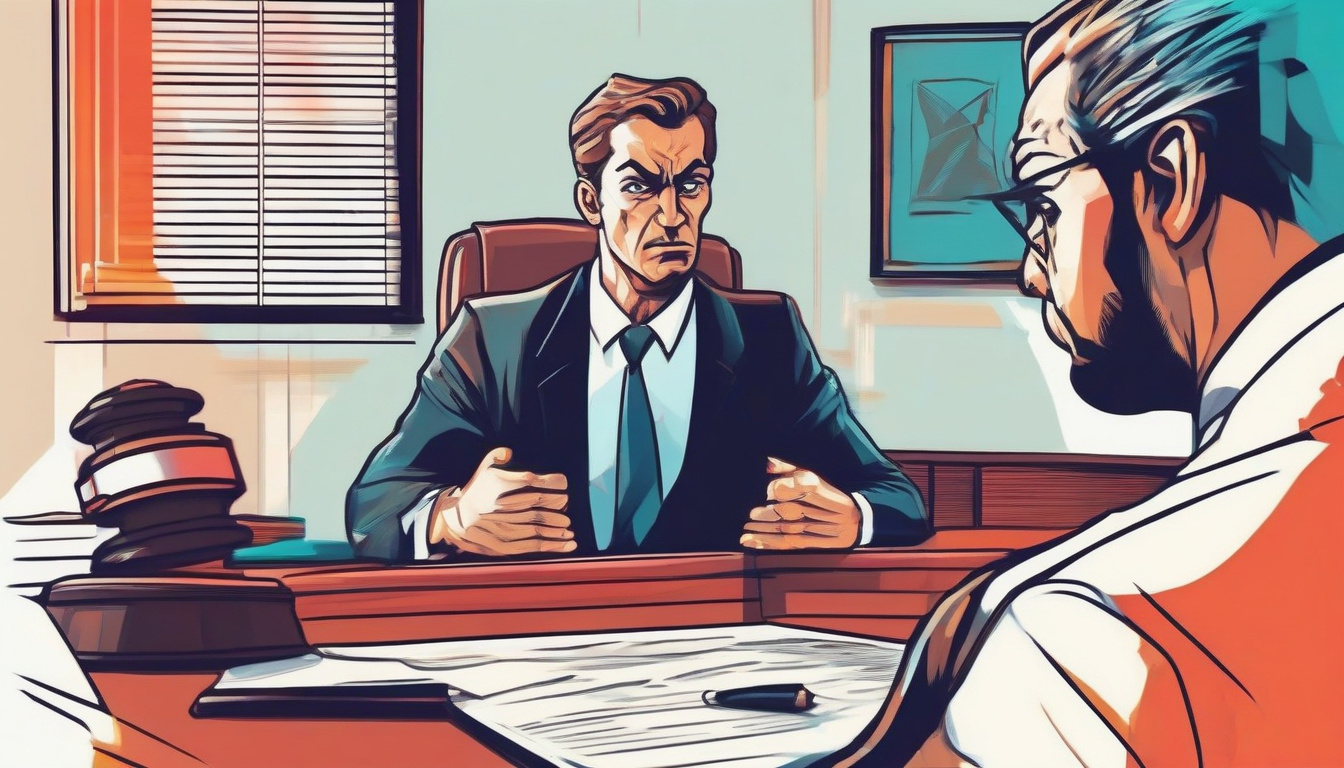Navigating estate fiduciary litigation is complex and drains emotion.
A fiduciary handles an estate. Beneficiaries, heirs, and others may challenge that role.
They question mismanagement, breach of duty, or unfair asset splits.
This guide shows you how to keep your rights safe.
Contents
- 1 Understanding Estate Fiduciary Litigation
- 2 Key Strategies for Protecting Your Interests in Estate Fiduciary Litigation
- 3 Common Pitfalls to Avoid in Estate Fiduciary Litigation
- 4 A Practical Checklist for Protecting Your Interests
- 5 Frequently Asked Questions About Estate Fiduciary Litigation
- 6 Leveraging Expert Insights: The Importance of Legal Expertise
- 7 Protect Your Interests Today
Understanding Estate Fiduciary Litigation
Estate litigation deals with a fiduciary running a decedent’s estate.
A trustee, executor, or administrator holds this role.
They must serve beneficiaries with care, honesty, and clear records.
When a beneficiary sees self-dealing, neglect, or fraud, they may file a suit.
Common causes include:
- A breach of fiduciary duty
- Mismanagement or waste of estate assets
- Disputes over a will or trust
- Arguments about a fiduciary’s role
- Conflict over asset division
Each dispute impacts both assets and family. Act with care.
Key Strategies for Protecting Your Interests in Estate Fiduciary Litigation
When you face this litigation, a clear and steady plan helps.
Below are six key points to remember:
1. Seek Experienced Legal Counsel
A complex case needs an expert lawyer.
A lawyer skilled in probate, trusts, and disputes will guide you.
They check your rights, your claim or defense, and follow the rules.
Early help also saves key evidence and shapes your case.
2. Gather Comprehensive Documentation
Your case grows strong with clear documents.
Collect the decedent’s will and any trust papers.
Secure bank records and estate statements.
Keep emails or letters with the fiduciary.
Record court filings and asset lists.
This proof shows either misconduct or proper action.
3. Understand Fiduciary Duties and Standards
A fiduciary works with a duty to care and a duty to be loyal.
They must put beneficiaries first, manage wisely, and share details.
Knowing this helps you spot any breach.
It also shapes clear and close arguments.
4. Consider Alternative Dispute Resolution (ADR)
Litigation can cost much time and money.
ADR like mediation or arbitration can clear disputes fast.
This choice saves funds and may ease family tensions.
Decide on ADR after a careful law review.
5. Be Proactive About Timelines and Deadlines
Time rules guide estate disputes.
Missing a deadline may end your case.
Work with your lawyer to note each key date.
Act promptly to meet all deadlines.
6. Maintain Clear and Professional Communication
Estate disputes mix legal and personal issues.
Speak clearly and stick to the facts.
Avoid harsh or unproven claims.
This helps keep discussions calm and fair.
Common Pitfalls to Avoid in Estate Fiduciary Litigation
Avoid errors as you proceed:
- Do not wait too long to act.
- Do not ignore expert legal advice.
- Do not focus only on conflict; be open to settling.
- Do not skip documenting your claims.
Steer clear of these, and your case will stand on firm ground.
A Practical Checklist for Protecting Your Interests
Keep this list close during litigation:
- Consult a specialized estate litigation attorney immediately.
- Review and secure all estate documents thoroughly.
- Spot any clear breaches of fiduciary duty.
- Keep careful records of every discussion with the fiduciary and related parties.
- Decide if mediation or arbitration can work.
- Watch each court deadline with care.
- Talk respectfully and stick to the facts with everyone.
- Weigh the costs before starting a lawsuit.
This list lets you follow a close and clear plan.
Frequently Asked Questions About Estate Fiduciary Litigation
Q1: What is a breach of fiduciary duty?
A breach happens when a fiduciary serves themselves over the beneficiary, acts carelessly with funds, hides important details, or breaks legal rules.
Q2: How long do I have for a claim?
Time limits vary by location.
Most laws allow one to several years after you find the breach.
Talk to a lawyer as soon as possible.
Q3: Can a fiduciary be removed for mismanagement?
Yes.
A court may remove one when proof shows a clear breach or unsuitability.
This step needs a formal petition and strong evidence.
Leveraging Expert Insights: The Importance of Legal Expertise
The American Bar Association notes that these cases need special know-how.
They say the claims involve tight financial checks, legal details, and sensitive family issues.
A skilled attorney boosts your chance to keep your rights safe and end disputes well.

Protect Your Interests Today
Estate fiduciary litigation may seem heavy.
Understand duties, gather evidence, and get expert help.
Choose clear tactics, think about mediation, and follow strict timelines.
Do not let poor fiduciary choices harm your assets or family ties.
Call an experienced estate litigation lawyer now, and act with clear, close steps.
Author: Doyle Weaver, Attorney at Law
Home | Estate Planning | Personal Injury | Hill Country Lawyer | Terms of Service | Privacy Policy
© 2025 Digital Law Firm, P.C.
Disclaimer: The content provided in this blog is for educational and informational purposes only. It is not intended to constitute legal advice or establish an attorney-client relationship. The information presented does not address individual circumstances and should not be relied upon as a substitute for professional legal counsel. Always consult a qualified attorney for advice regarding your specific legal situation. The author and publisher are not liable for any actions taken based on the content of this blog.

Leave a Reply